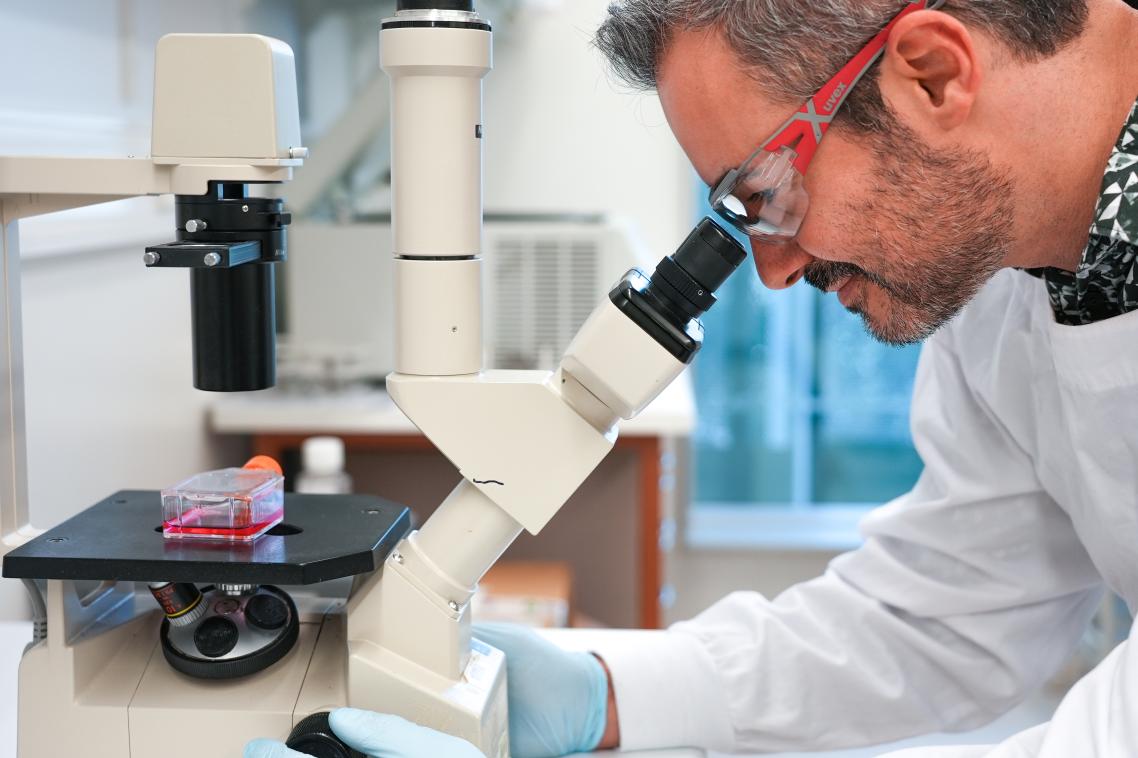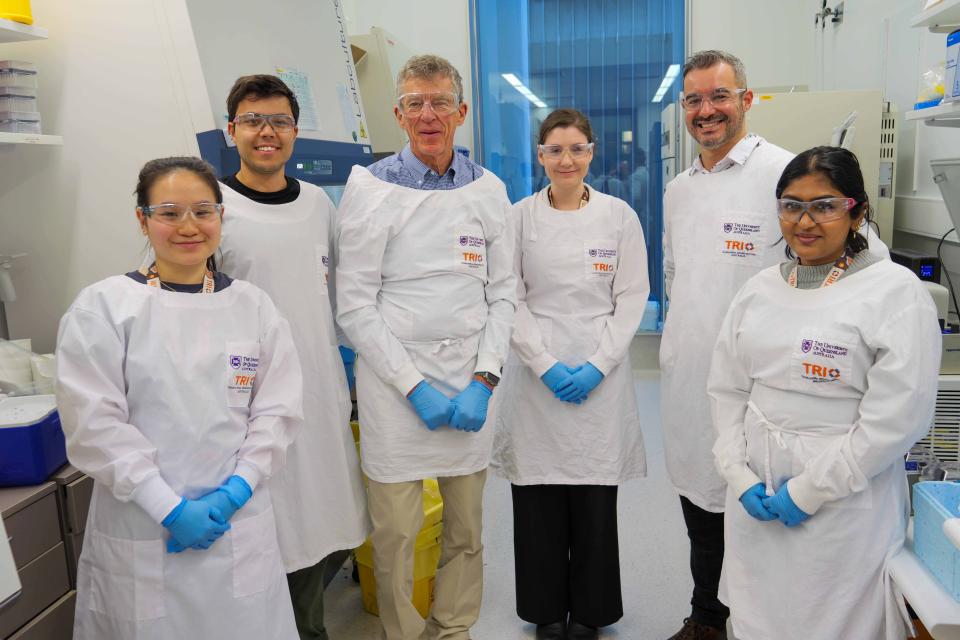A path forward for childhood cancer

Associate Professor Fernando Guimaraes looking into microscope
Key points
- For nearly four decades, there’s been little progress made into treating paediatric sarcomas.
- Associate Professor Fernando Guimaraes and his team have developed an immunotherapy treatment that uses Natural killer (NK) cells to target and destroy tumours.
- This would create another therapeutic option for patients who are otherwise faced with undergoing chemotherapy or surgeries.
In Queensland, paediatric sarcomas represent around 5-10 percent of all childhood cancers.
For nearly four decades, there’s been little progress made into treating these stubborn tumours, despite sarcomas remain the leading cause of death amongst children suffering from cancer – more than brain cancer, melanoma, leukemia and lymphoma.
But there is new hope for children and families affected by these diseases.
Associate Professor Fernando Guimaraes and his team have developed an immunotherapy treatment that uses Natural killer (NK) cells to target and destroy tumours.
NK cells are naturally designed to detect and destroy abnormal cells and they’re less likely to cause dangerous immune reactions.
“Natural killer (NK) cells are still in the early stages of clinical development compared to T cell-based therapies, however, emerging data suggest they offer unique advantages,” Dr Guimaraes said.
“Our goal is to engineer NK cells to develop tailored immunotherapies that better recognise and kill cancer in a safer, and more effective treatment.
“This would create another therapeutic option for patients who are otherwise faced with undergoing chemotherapy or surgeries.”
Clinically, Dr Guimaraes and his team have already developed and tested new CAR-NK cells targeting sarcomas and are working closely with oncologists at Queensland Children’s Hospital to move this toward early-phase clinical trials.
In addition to this they’ve also identified new immune “checkpoints” that cancers use to shut down the body’s immune response and are partnering with drug developers to turn these discoveries into therapies.
“Paediatric sarcomas and triple-negative breast cancer in women still lack reliable therapies but by harnessing the potential of NK cells, we can revolutionise how we treat these patients who urgently need better outcomes,” said Dr Guimaraes.

Associate Professor Fernando Guimaraes and Emeritus Professor Ian Frazer with their research team
(Photo credit: Fernando Guimaraes)
One of the biggest questions that remains unanswered for Dr Guimaraes’ and his team is how to get immune cells to consistently and effectively attack solid tumours.
“Unlike blood cancers, sarcomas create a very hostile environment that makes it hard for immune cells to survive and function,” Dr Guimaraes explains.
“We’re using technologies like multiomics to better understand what stops immune cells inside tumours and how we can reprogram them to overcome those barriers.
“We're also developing and testing advanced cell engineering approaches, including our own therapeutic antibodies and chimeric antigen receptor (CAR) constructs, some of which are now protected by our own intellectual property.”
The next major milestone Dr Guimaraes is working towards is setting up a dedicated hub for NK cell therapy manufacturing in Brisbane.
The facility will allow them to produce immune cell therapies under the strict standards needed for human trials.
“This is a critical move toward running the first clinical trials of NK cell therapies for solid cancers in Australia - not just for our research, but for building national capacity, so these advanced therapies can be developed, tested, and eventually delivered to patients across the country.”
NK Cells
NK Cells

Microscopic view of NK Cells

Microscopic view of NK Cells

Microscopic view of NK Cells
